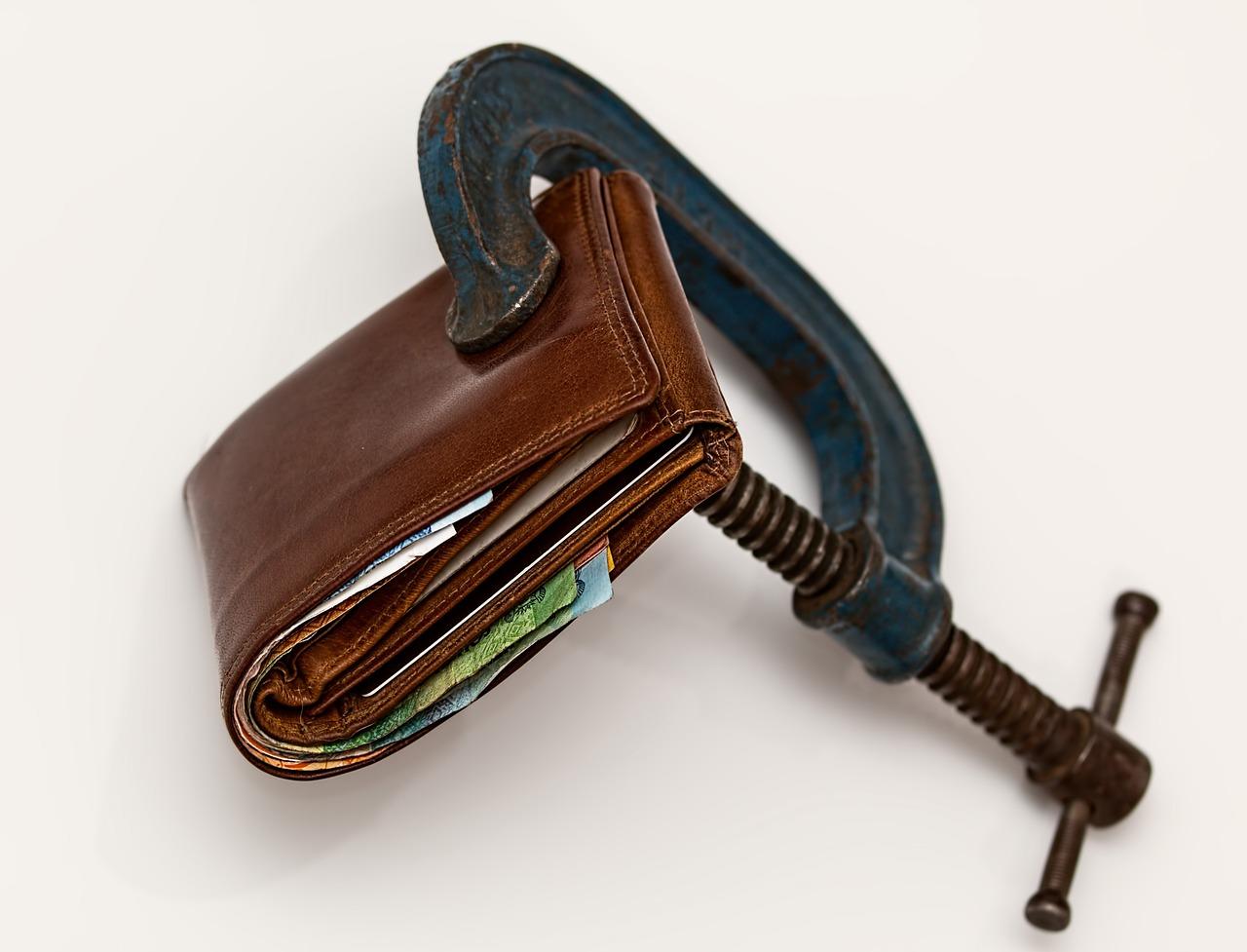Of course, this article's title is meant in jest. Besides higher education, in general being 'worth it', it's crucial that fertile young minds like yours, the kind that isn't afraid to come up with novel solutions to the world's most pressing problems develop a strong foundation in economic theory.
To give tomorrow its best chance, we have to discover and implement new ways to run our economic structures. That's something only fresh, new ideas can do. But... no pressure! You've got enough on your plate.
Applying to university can be a very stressful time in life – there are so many choices to make when it comes to deciding which university, and which degree course, is right for you. Perhaps an overview of economics study might inform you more quickly.
| The facts about economics degrees: |
|---|
| - You don't need to be good at maths to study economics. |
| - Earning your economics degree entails attending lectures and seminars, completing project work and writing reports and essays. |
| - The UK has some of the best university Economics programmes in the world. |
| - A degree in Economics prepares you for a wide range of careers. |
| - Job growth in the field of economics is projected at 14% over the next decade. |
| - FinTech has added a new dimension to traditional economic thinking. |
Thankfully, for A-Level students looking to launch their career as an economist and study economics at university, there are a few hints and tips below about how to apply for an economics undergraduate degree.

Are Economics Degrees Useful / In Demand?
Despite all the hype about IT courses and FinTech studies and how those fields attract the majority of today's university students, a degree in economics is one of the most sought-after degree subjects in the U.K.
This is because:
- Economics graduates show that they have a wealth of transferable skills;
- Economics graduates are usually highly numerate and great problem-solvers; and
- Economics graduates have great analytical skills and can interpret economic data, which employers highly value.
With this in mind, you should feel confident when applying for an economics degree.
Indeed, studies have shown that upon completion of an economics degree, on average economics graduates tend to earn more five years after leaving university than graduates of other subjects, including social science disciplines, such as history and psychology.
Although such studies are not a sure-fire indication that studying for an economics degree will land you a high paying job, it’s reassuring to know that economics graduates do appear to be highly valued in today’s workforce, and generally are able to find employment within a profession of their choosing.
Of course, the joy of studying at a U.K. university is that, often, the degree course you take doesn’t dictate what kind of career you have to have after university. This means that most job options (besides highly trained professions, such as medicine, veterinary science, and architecture) should remain an option for you with an economics degree.
This means that if you wish to land a career or internship in areas such as:
- Accountancy;
- Banking;
- Consulting;
- Government work, or
- Financial advisory
A graduate degree in economics can help you secure these jobs.
However, even if you decide partway through your course that your heart is set on a career in journalism or marketing, you are still free to pursue that career with your economics degree, along with thousands of other economics undergraduates that pursue such career paths each year.
This means that an economics degree does not limit you to roles purely in finance or accounting, which can be a relief for some.
You might find it helpful to check in with a careers advisor when you reach your second or third year of university, as they may be able to point you towards elective modules that could be relevant for your future career.

Putting Your Economics Degree to Work
Economics studies encompass such a broad range of skills and abilities that you could work in virtually every sector, from retail to formulating economic policy in a government-affiliated enterprise.
Indeed, if your career goals include being a political advisor, you can't go wrong with an economics degree.
Besides all of the career fields mentioned in the preceding segment, economics graduates have access to practically any field that interests them because of the transferable skills they learned while studying. For instance, the research and analysis you learned how to do during the course of your studies transfer well to, say, an online start-up enterprise.
Let's say that, once you've earned your degree and cast about for enticing jobs, you realise that work as an economist doesn't suit you at all. You decide to chuck that line of work altogether and, instead, install yourself as a freelance stock analyst.
This work would call for you to research past stock performance so you can project future gains and possible losses. You would have to analyse current consumer trends and watch for signs of the stocks you track falling out of favour. You would also have to monitor stock markets around the world to keep atop their activity; no stock market operates in a vacuum, after all.
Conversely, if you are anxious about climate change and environmental concerns, you might work with a non-governmental organisation (NGO) or charity to perform cost/benefit analyses for proposed changes to industrial practices or commercial enterprises.
One might argue that this type of work is where economists are most urgently needed.
Your training in economics endowed you with excellent critical thinking skills that allow you to approach a challenge from many different directions to determine the best solutions. Furthermore, as you're well-versed in the language of change and making projections, you would be uniquely suited to present your findings to any entity that needs the information you've compiled.
If none of these possibilities sounds like anything you'd want to plant your flag on, how about teaching?
It's no secret that the teaching profession is badly in need of knowledgeable, qualified masters, especially in such specialised fields as economics. If you've no appetite for working abroad as an economic journalist or foreign trade specialist, and office work doesn't sound appealing - nor does government duty, perhaps leading a classroom would be the right fit for you.
Your unique vision for a future of an equitable global economy, coupled with your deep understanding of economic theory and passion for the subject could be the winning combination needed to train tomorrow's economists.
Are you starting to see the possibilities a degree in economics could afford you? Let's now discover the best Economics programmes in the UK.

Best Universities For Economics In The UK
The U.K. is a fantastic place to go to university, as there are so many quality institutions that deliver world-class education and research, and give students a solid founding in economic principles, microeconomic theory, and econometric theory.
As a result, students applying for a place on an economics undergraduate degree are spoilt for choice in terms of where to apply.
If you’re looking to study economics at one of the U.K.’s top universities, then there are a number of institutions you can choose from.
For instance, you may wish to apply to either Oxford or Cambridge University to study economics. Both universities deliver their economics courses in slightly different ways, as:
- Oxford integrates economics study into wider courses, such as Philosophy, Politics and Economics; and
- Cambridge offers economics as a sole subject.
As such, it’s important to think about whether you’d like to study economics on its own, or whether you'd prefer to study economic theory as part of a combined degree before you apply to a university.
If Oxbridge isn’t for you, then there are other universities you can apply to. University College London and the London School of Economics offer world-renowned economics degrees that are equally competitive to get into.
If you do decide to apply for a place at one of these universities, or any of the other top-tier universities in the U.K. to study economics, then you should make sure that you’re on track to get the required grades during your A-Level results in order to meet your preferred university’s entry requirements.
Given how competitive places onto such courses can be, it’s worthwhile seeing whether there are other ways to help boost your academic performance, especially if you’ve found yourself struggling in one or more of your A-Level subjects, or have found particular pieces of coursework challenging.
Tutoring websites, such as Superprof, have a range of tutors that can provide assistance across a range of subject areas, whether that’s:
- Mathematics and Further Mathematics;
- History;
- Government and Politics; and
- Economics.
If you let your tutor know in advance what subject areas you most need help with, they can make sure to tailor your tutoring sessions to help you boost your results, and give you more confidence in your understanding of economic principles before you head into your final exams.
Get an online tutor for economics here.

What Does Earning an Economics Degree Entail?
If you're like most prospective economics students we know, you're most worried about how much maths is involved in studying economics - or whether one has to be a maths whiz to master economic theory at all.
In fact, so prevalent is that concern that we've dedicated the next segment wholly to that topic. For now, let's go over the type of class and homework that will be expected of you to fulfil your degree requirements.
It should go without saying that you will be required to attend lectures and take part in seminars. For the most part, the lectures will be fairly standard; they'd be considered the bare minimum of your engagement in the programme to earn any marks. Seminars are generally considered extra.
Such sessions are characterized by intense discussion of a specific topic involving economics. For instance, you might spend an afternoon or evening exploring solutions to wage inequality or scarcity - two topics that happen to be heated subjects of debate these days.
Most university programmes offer a series of seminars throughout the semester; the choice of which ones to attend is left to you. You might be lucky in that your school Economics department might publish a list of scheduled seminars so you can make your selections ahead of time.
The best Economics schools arrange for leaders of the business community to give talks throughout the year. Events such as these should not be missed because you can gain valuable insights into real-world economic principles at work. Here, again, you might have a list of scheduled speakers. If so, it's just a matter of picking the ones who will address the topics most relevant to your aspirations as an economist.
Through all of this, you should expect written assignments, both essays and reports. Also, you'll likely be assigned projects to work on throughout each semester, both individual tasks and group work.
You should decide early whether you'll work towards a Bachelor of Science degree or Bachelor of Arts. the former is more technical - that's the maths-intensive trajectory while the latter delves more into the social and psychological aspects of economic study and practice.
The degree plan you sign up for will also determine where you will be placed to gain field experience before graduation.

Can you Study Economics Without Maths?
Before applying for an undergraduate place at university to study economics, it is worthwhile taking the time to research your preferred courses so that you know what kind of business and economics topics you’ll be taught during your three or four years at university.
This is especially important if:
- You didn’t study maths at A-Level; or
- If you’re not confident in your maths ability and don’t want to take a maths-focussed economics course.
This is because there are a lot of economics courses that will require students to have maths and in some cases further maths, at A-Level. For example, due to the course’s focus on mathematics and statistics, the economics course at the University College London requires applicants to have a maths A-Level.
One way of gauging whether a degree course is likely to be maths-heavy is the kind of degree that you will take away with you upon graduation. Generally speaking, undergraduate economics degrees that award a BA will be less maths-focused, while BSc courses will have more mathematical modules and emphasis.
This isn’t a hard and fast rule though, so make sure to look at each university’s prospectus to see the kind of modules on offer throughout the degree.
Although it is possible to study economics at university without having a maths A-Level, this doesn’t mean that your economics course will be completely devoid of maths.
In fact, as maths is the cornerstone of many economic theories and pieces of economic analysis, you will come into contact with maths at some point, for example, in your micro- or macroeconomics modules, or in any quantitative analysis modules your course offers.
If you know you’re going to go to a university that has a focus on maths, then you might want to prepare yourself before going to university by enlisting the help of an economics or maths tutor, to get you up to speed with the key numerical skills you should need for your first year at university.
Superprof has a range of economics and maths tutors to select from, who can be filtered based on factors such as location, and how lessons are delivered (e.g. online, in private, or in small groups).
Find more economics A level tutors here on Superprof.
The Fight For Diversity In Economics Teaching
When researching different economics courses, you may notice that most universities have quite a few modules in common.
More often than not, during an economics undergraduate degree, you will study subjects such as:
- Macroeconomics;
- Microeconomics; and
- Econometrics.
Although these courses will be taught in their own particular way at each university, based on each lecturer’s experience and research expertise, economics graduates usually leave university with a solid understanding of these core areas of economics.
However, over the past few years, there has been a growing movement at the student level to try and get universities to make their undergraduate economics courses broader in scope.
Societies, such as the University of Manchester’s Post-Crash Economics Society, have argued that the teaching of the subject by any economics teacher throughout the U.K. is almost homogenous and has too great a focus on the neoclassical school of economic thought, to the detriment of other areas, whether that be post-Keynesian economics or Marxist economics.
They also argue that there should be more focus on economic history, as sometimes graduates run the risk of completing degrees without having studied in any great depth topics such as:
- The Industrial Revolution;
- The Great Depression;
- The collapse of the Bretton Woods system and
- The causes of the 2008 financial crisis.
Although these areas may be given more prominence during undergraduate economics courses in the years to come, it’s unclear whether any change is scheduled within the immediate future.
As such, if you would be interested in learning more about economic history during your time at university, or would like to know about different schools of economic thought and their development, it may be worthwhile paying extra close attention to the modules on offer at universities, to see which modules most align with your interests.
You could also hire an economics tutor to help guide you through these areas, through sites such as Superprof. The choice is yours!

Economics in the Information Age
Money, its value and use are fundamental concepts of economic theory. For millennia, money was a straightforward proposition: you had some or you didn't; if you borrowed some you had to pay it back with interest and money allowed people to grow their wealth.
At the root of all money, though, was central control.
Governments issued the legal tender. They decided how much money should be in circulation and what it's worth. Formal houses of money - banks served as the midpoint between the government and the people, granting access to money for merchants and consumers, and delivering reports and returns to the government on the state of transactions and holdings.
About 12 years ago, a seismic shift in money and how we think of it, use it and measure its worth... barely made an impact.
Early in 2009, the first blockchain was established; thus debuted the first-ever cryptocurrency. To the wider world, it was a flight of fancy. To the criminal underground, it was a long awaited solution to their needs for untraceable financial transactions. Nobody took the idea seriously until around 2015, when the Ethereum blockchain recorded its first transaction.
Suddenly, cryptocurrencies became a very big deal, indeed. And for more reasons than one.
For the first time in financial history, no government was in control of a money supply and no official entity kept a ledger of all its transactions. What are the possible ramifications of citizens creating currencies that governments can't track? Who assigns those currencies their value and what is it based on?
Cryptocurrencies impact the real world in other ways, too.
For one, cryptocurrencies have caused those well-publicised stock market tremors. Some blockchains are exceedingly environmentally costly. Who should tally that cost and who should pay for it? And how should those costs be assessed in the first place?
The rise of FinTech has opened up a world of economic and financial challenges. From the aforementioned cryptocurrencies to wealth transfer via smart contracts to earn thousands, if not millions through the sale of non-fungible tokens (NFTs)...
Governments the world over are scrambling to find ways to fit all of these new financial tools into traditional moulds. As yet, they've not found a way to do so; we only need to look at how Argentina, the first country to accept Bitcoin as legal tender, is faring.
China has taken another tack. Last year, they debuted their digital currency, the e-CNY (also e-RMB). It distinguishes itself from other cryptocurrencies because it is fiat-issued by the government, and it is centralised. So far, it remains speculative; it can only be used to trade in their futures markets.
These are just a few of the reasons why today's economics students demand (and need!) a broader scope of learning and more diversity in their economics education.
If for no other reason than finding solutions to the changes in how money is conceived, valued, handled and traded, a career in economics promises to be both exciting and rewarding. But students have to be aware of these issues before they can address them.
Whether you choose to work in a think-tank, batting ideas about the future of economics around and coming up with new economic theories, or you teach the subject to future economists who will confront issues with the same degree of complexity, earning your degree in Economics is well worth your time and effort.
And, considering that the demand for economists is projected to grow by around 14% over the next eight years, you might say that economics is likely to be one of the most stable career fields.
Summarise with AI:

























